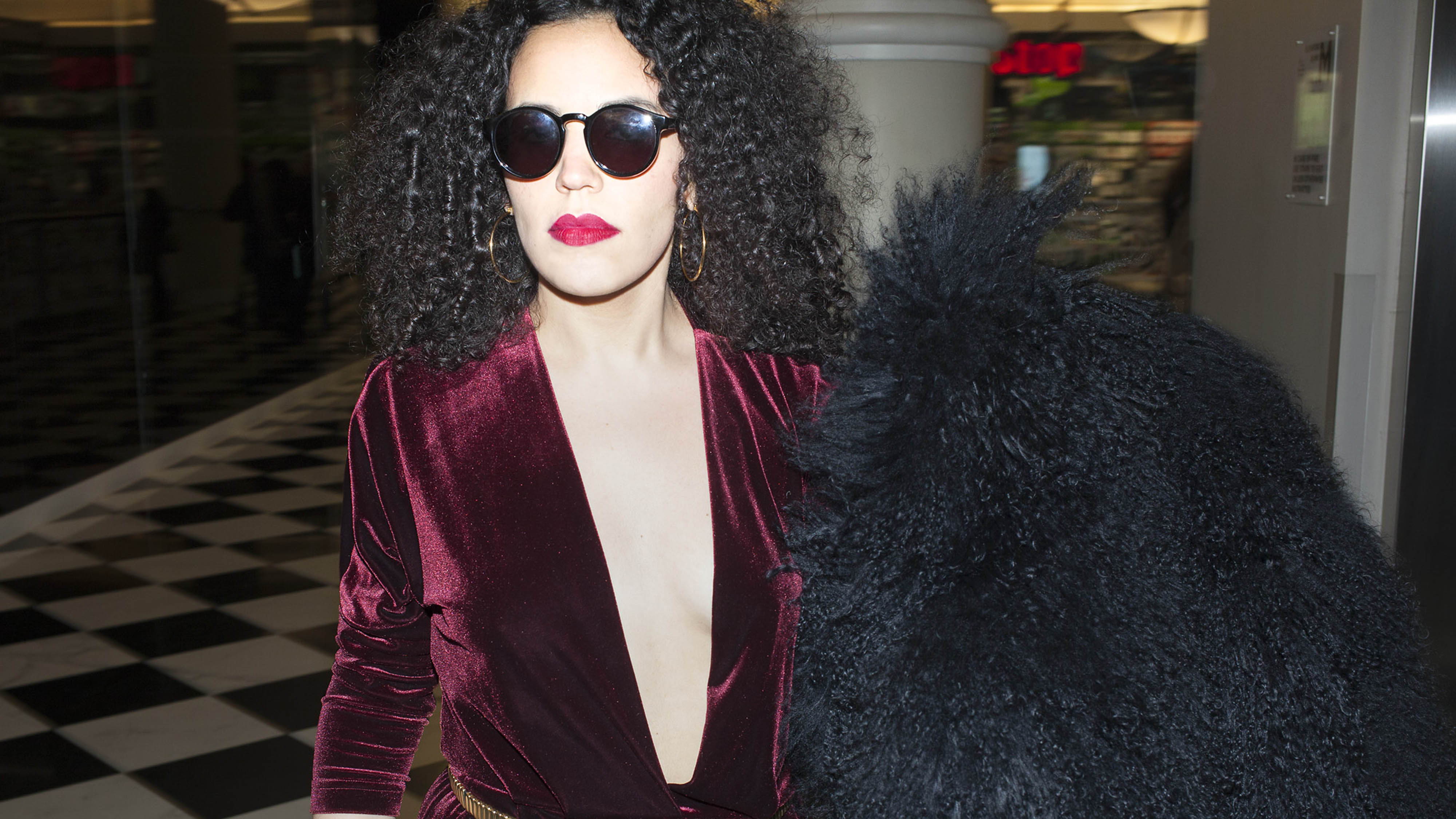BACKSTORY: A singer who doesn’t defy one genre, but embraces them all—rock, jazz, bolero, salsa, hip-hop, R&B, you name it—in her experimental groove
FROM: Hartford, Connecticut, originally, and now based in Brooklyn, New York
YOU MIGHT KNOW HER FROM: “Cherry Tree,” the track off 2013’s Magic Trix that features little more than Rubinos’s trippy vocals and the battering of a drum kit
NOW: Celebrating the release of her latest full-length, Black Terry Cat, out now on ANTI-
Xenia Rubinos is just as much about the movement as she is about the music, and she’s feeling it today.
It’s a sunny afternoon in Greenpoint, the kind that makes you wish that the rapid development of the neighborhood yielded more trees and other shadow-providing structures instead of the naked skeletons of buildings mid-construction, and Rubinos is recuperating after the proper coming-out show for her new album, Black Terry Cat, which took place across the river in an East Village basement the night before. At the performance, Rubinos scaled the furniture, pranced straight into the crowd and rolled through the album with the fluidity and grace of yesteryear’s jazz and cabaret regulars. The first words we hear from “Don’t Wanna Be,” Black Terry Cat’s second track, sum up her straightforward appeal: “I rule this place with a golden fist… I’ve got things to make your love grow thicker / I’m on planes to make your headspace bigger.” She does, and those words continue to echo out of that tiled basement on Second Avenue and up over the water as we rehash the night before on a bench in Transmitter Park.
“I think I just become possessed and I’m out of control at a certain point,” she says. “I’m really bound to do whatever, jump off a really high stage and just not realize it—it’s not premeditated. I grew a lot in the past year or so of touring and understanding where I’m at. Every day, that’s evolving and growing. I’m trying to get more comfortable in my body; my voice is my primary instrument, and it’s inside of my body, which I sometimes feel really disconnected from.”
“I’m trying to get more comfortable in my body; my voice is my primary instrument, and it’s inside of my body, which I sometimes feel really disconnected from.”
The idea of Rubinos feeling disconnected from anything, let alone the source of her powerful mezzo-soprano belt, is a strange one, especially considering how Black Terry Cat is a confessional conduit that threads a direct line between listeners and the inertia of her stream of consciousness.
Music has always been a part of her communicative fabric: before her inventive, eclectic debut Magic Trix, Rubinos was a jazz composition student at Boston’s Berklee College of Music, where she honed her theory chops; before that, she grew up in a household that encouraged sharing favorite sounds, whether they were show tunes or the salsas and meringues of the Caribbean, where her family tree takes root. Her dad used to take her to see musicals, and she can trace the roots of her own flair for heartbreak, intensity, and compelling choruses to a mutual appreciation for Judy Garland and Cuban cabaret icon La Lupe. “That instilled a love for drama that I’m just now realizing is in my performance,” she says. “A little over the top, a little dramatic.”
Black Terry Cat—her sophomore album and ANTI- debut—furthers the dramatic strengths of Magic Trix, in that Rubinos’s voice is the steady constant amid the clashing rhythms and lyrical tension. Paired with the controlled chaos of Marco Buccelli’s drumming, Rubinos can skate over a hip-hop barrage with the dexterity of a veteran rhymer (“Mexican Chef”) and backstroke through viscous R&B lines (“Lonely Lover”). But it’s the confrontation with socio-political difficulties that sets Black Terry Cat apart from her prior work, as Rubinos pokes at the negative developments in the world around us.
“A record is a photograph of an idea,” she says. “Then it takes on its own life as people hear it and do what they will with it. Playing live is one of my favorite things to do, and it’s the way I give life to the recorded material, to the songs. That’s the way they continue to change and grow.” FL
This article appears in FLOOD 4. You can download or purchase the magazine here.









